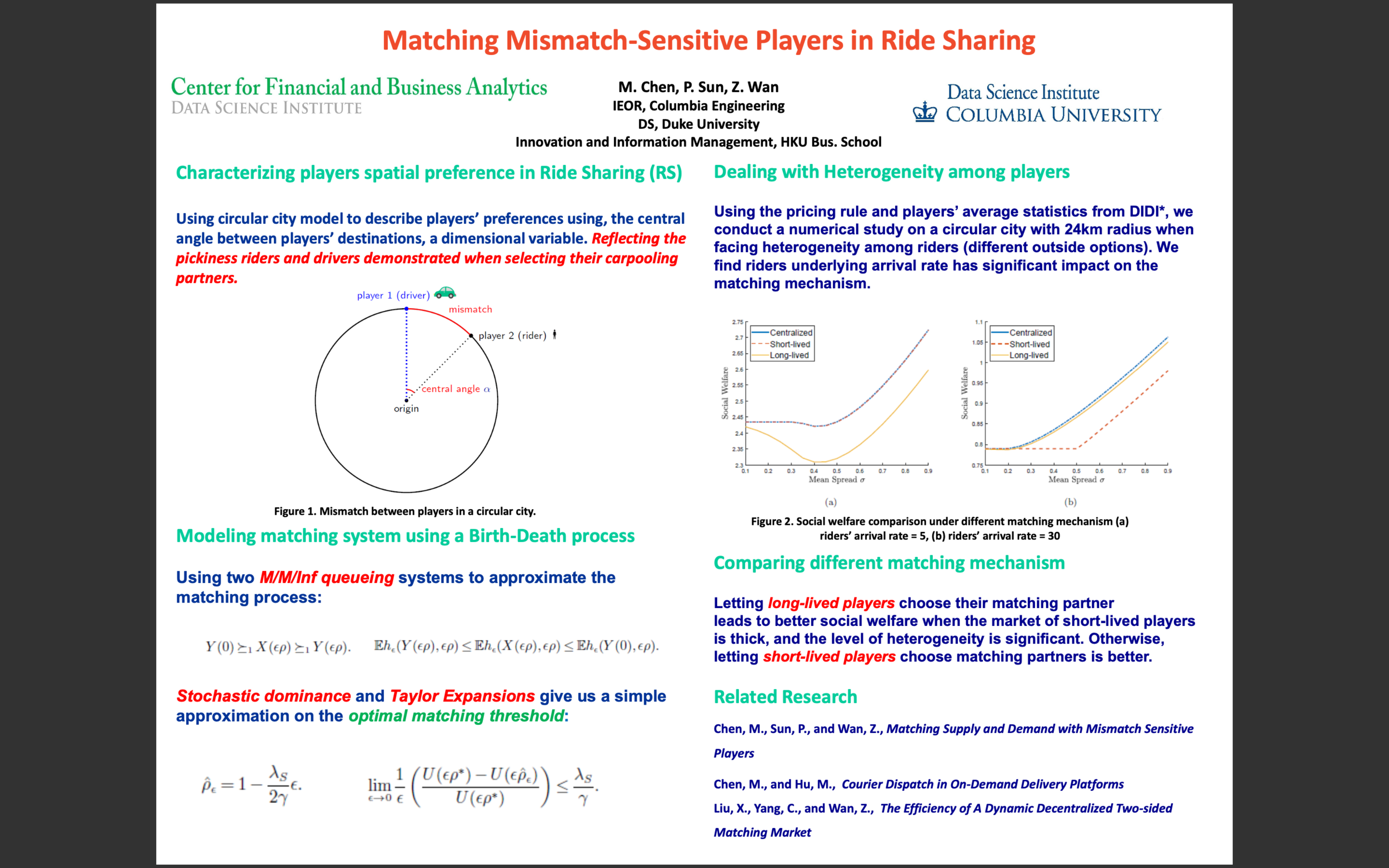Matching Mismatch-Sensitive Players in Ride Sharing
Video
Team Information
Team Members
Mingliu Chen, Associate Research Scientist, Industrial Engineering and Operations Research, Columbia Engineering
Abstract
We study matching over time with short- and long-lived players who are very sensitive to mismatch. To characterize the mismatch, we model players' preferences as uniformly distributed on a circle, so the mismatch between two players is characterized by the one-dimensional circular angle between them. This framework allows us to capture matching processes in applications ranging from ride sharing to job hunting. Our analytical framework relies on threshold matching policies. If the matching process is controlled by a central planner (e.g. an online matching platform), the matching threshold reflects the trade-off between matching rate and matching quality. We further compare the centralized system with decentralized systems, where players choose their matching partners. We find that matching controlled by either side of the market may achieve optimal or near optimal social welfare, but have great impact on welfare allocation. In particular, letting long-lived players choose their matching partner leaves short-lived players with zero surplus. Moreover, we extend our model with player heterogeneity. Letting long-lived players choose their matching partner leads to better social welfare when the market of short-lived players is thick and the level of heterogeneity is significant. Otherwise, letting short-lived players choose matching partners is better.
Contact this Team
Team Contact: Mingliu Chen (use form to send email)

